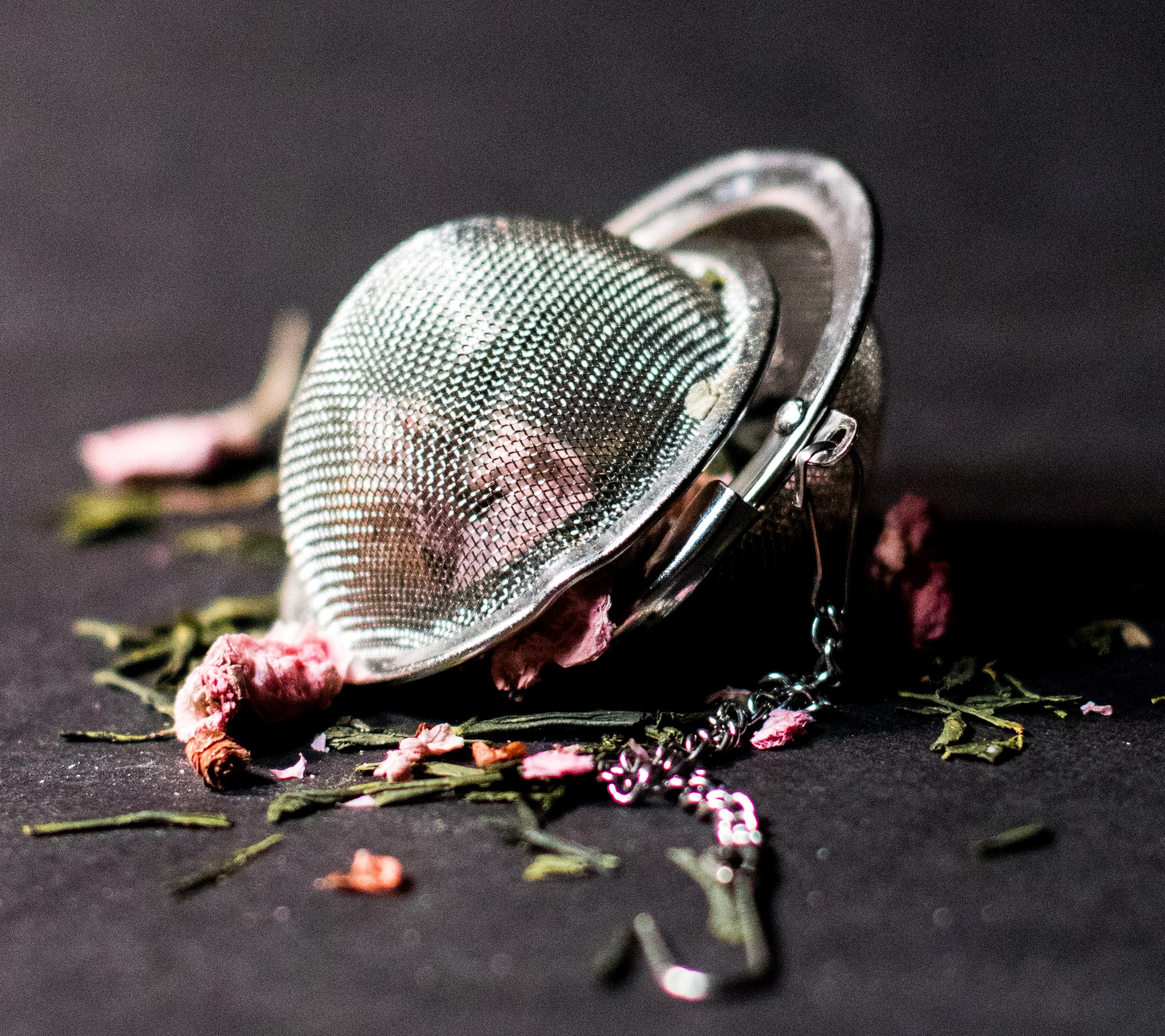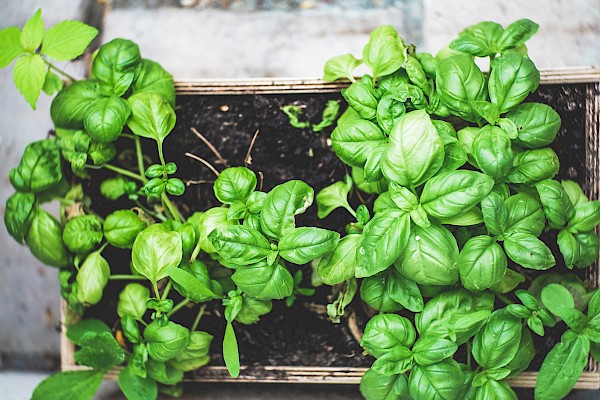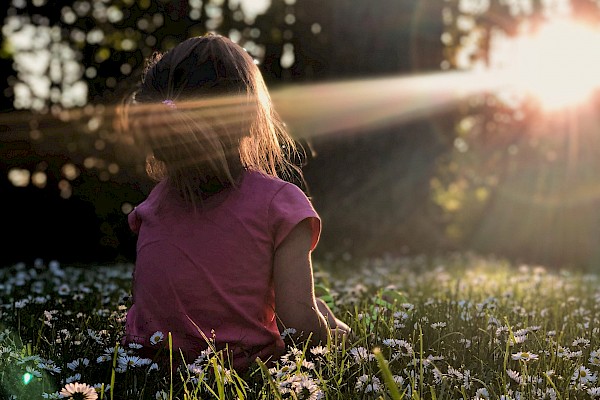Tea against stress
Are you someone who starts and finishes their day with a nice cup of tea?
After water, tea is the second most important drink worldwide. We love to drink tea in Switzerland, but we would have no chance against the tea-drinking world champions – the East Frisians, who drank approximately 300 litres of black and green tea per person in 2019.
Did you know that you can only call the hot drink “tea” when it is made from the tea plant (Camellia sinensis)? This includes green, black, white and oolong tea. All other infusions of herbs and fruits are, strictly speaking, not genuine teas, just tea-like drinks. When we talk about “tea” in this article, we mean “real” tea from the tea plant. To avoid misunderstandings, all other “tea” products are specifically named.
We often reach for our cups of tea, particularly in the winter. Tea is also supposed to help us deal with stress – but is that really true?
What are the ingredients of real tea?
The ingredients of tea include:
- Carbohydrates
- Proteins
- Caffeine
- Theanine
- Flavonoids
- Minerals (e.g., selenium, calcium, magnesium, zinc)
Tea is largely made up of carbohydrates and proteins. However, they are barely water soluble and therefore rarely end up in your tea. Caffeine and theanine are present in smaller concentrations, but dissolve in water. A cup of tea contains less caffeine than a cup of coffee – approximately half as much, as a rule of thumb. However, the tea's infusion time will also make a difference. If your tea infuses for only a minute, approximately 20mg caffeine has dissolved into it. If you wait for five minutes, then you get approximately 33mg.
Maybe you have already heard of theine? Theine is really just caffeine, but in tea. It’s the same substance. However, the caffeine in coffee is different from the caffeine in tea in its mode of action. This is because the substance is released in different ways. The caffeine in tea is believed to be absorbed more slowly by the body, which means that the effect also lasts longer. The fruit and herbal teas (tea-like drinks) that we also very much like to drink do not contain any caffeine or theine. These substances are only present in the tea plant’s leaves, although green tea contains more theine than black tea.
Is tea healthy?
First of all, we can note that tea or tea-like drinks are healthy sources of fluids, although only when we don’t add sugar, of course. Regarding the substances in “real” tea, studies show that the caffeine, flavonoids and theine they contain may benefit your health. There are indications that they boost the immune system, prevent cancer and cardio-vascular diseases and reduce the risk of obesity and diabetes.
Essentially, all tea drinks are quite safe for your health. However, you should pay attention to the quality (e.g., organic quality) when you buy tea, in order to be sure that your tea does not contain any undesirable harmful substances. What’s more, don’t leave your tea to stand for several hours, as this could result in a germ culture forming. In this case, it’s better to make yourself a new cup of tea. As real teas contain caffeine, you should also consume them in moderation.
Can tea reduce stress?
“To drink tea is to forget the noise of the world.”
− Chinese proverb −
Regarding the ingredients in real tea, there are indications that theine, an amino acid, may have a certain relaxing effect on our bodies. Studies have established that theine facilitates the generation of alpha brain waves, which the brain produces when we are awake and in a relaxed frame of mind. In addition, another clinical review concluded that consuming theine potentially has anti-stress properties and may also reduce anxiety. However, we should note here that the daily dose of theine in this study was approximately 200-400mg, but a normal cup of tea only contains around 4-12mg. What’s more, there is insufficient evidence that theine will cause a reduction in periods of chronic stress. Tea (the ingredients) alone won’t help you to significantly reduce your stress levels.
There is even less data pertaining to tea-like drinks. That’s why it is difficult to make a clear statement on the effect of tea on the experience of stress. However, certain effects are ascribed to some sorts of tea.
Lemon balm tea is said to have calming properties and to soothe cramps. It may also help with insomnia, tension and digestion problems, among other things. A review study concluded that lemon balm extracts may reduce stress. Orange blossom tea, too, helps with tension and sleep disorders, as it has calming and sleep-promoting properties. But not everyone experiences these effects. As so often happens, you may respond very differently to tea drinks like this. Any given effect (the type of tea is irrelevant) is not guaranteed in everyone.
As you now know, science has so far not found unequivocal proof that tea and tea-like products clearly reduce stress. We can assume that the ingredients in real tea and certain herbal teas may aid some symptoms (e.g., tension).
What can you do to ensure that your cup of tea helps you to relax and reduces your stress, regardless of whether you drink it in the morning or the evening? One answer may be to associate drinking tea with mindfulness.
Mindful tea-drinking
In our day-to-day lives, we frequently don’t consciously make time to drink our tea. Water is boiled in the kettle, the teabag is taken out of the box and put into the cup. While we wait, we quickly complete another task or are at the very least thinking about the entirely different things that also preoccupy us.
However, drinking tea is not just about tea the drink, but also the whole preparation, the act of drinking and the surroundings and atmosphere during the entire process. If you take the time to make and drink your tea calmly and attentively, then it may benefit your stress levels or feelings of stress.
Countries such as Japan and China hold regular tea ceremonies, which can take quite a long time and follow a strict procedure. In Japan, the ceremony also needs to fulfil each of the four principles (harmony, respect, purity and stillness). You can read about how such a ritual is performed here.
How can you optimise your tea-drinking so that it relaxes you as much as possible? For example, you can achieve this by creating your own special tea down time (or tea ceremony). You can design your ritual in entirely your own way. The ideas below may inspire you.
Ideas for your own tea down time
Before you start to create your tea ceremony, you should consciously allow approximately 20 minutes, so that you can complete your ritual without interruptions or disturbances. Take as much time as you like for each step. Moreover, loose tea is more suitable than tea bags here.
- Boil the water in a pot or kettle. Try to perform every action consciously and to be aware of each one as you make your tea. What noises are you aware of when you fill the kettle and heat the water? What else can you hear? What do you notice?
- While the water is boiling, take out your tea caddy. When you open it, what smell rises to your nose? What colour is your tea variety? Take a moment to savour your impressions.
- Put the loose tea into your filter and pour water over it. What’s happening in your cup? How does the appearance of the water change, and what happens to the smell?
- After making your tea, select a comfortable place to drink it in. When you have settled yourself down, turn your attention to your breath. Breathe in and out consciously and deeply a few times. Observe what happens to your body and your breath when you do. By doing this, you are also making use of the time that your tea needs to cool a little.
- Now that your tea is a bit cooler, hold the cup in your hands and feel how warm it is. Drink your tea, sip by sip. What can you taste? How does the warmth feel in your mouth and body? Try to enjoy the act of drinking your tea.
- After the last mouthful, close your eyes and be aware of your body. How do you feel? What has changed?
Enjoy your tea, and relax!
References:
Allemann, S. (2017, January). Tee – Die korrekte Zubereitung bringt die Wirkung. Schweizer Radio und Fernsehen. https://www.srf.ch/wissen/gesundheit/tee-die-korrekte-zubereitung-bringt-die-wirkung
CSS Versicherung. (2021, May). Orangenblüten-Tee. https://www.css.ch/de/privatkunden/meine-gesundheit/gesundheitslexikon/hausmittel/orangenblueten-tee.html
CSS Versicherung. (2021, May). Melissentee. https://www.css.ch/de/privatkunden/meine-gesundheit/gesundheitslexikon/hausmittel/melissentee.html
Fermino, B. L., Khalil, N. M., Bonini, J. S., Pereira, R. P., da Rocha, J. B. T., & da Silva, W. C. F. N. (2015). Anxiolytic properties of Melissa officinalis and associated mechanisms of action: A review of the literature. African Journal of Pharmacy and Pharmacology, 9(3), 53-59.
McKay, D. L., & Blumberg, J. B. (2002). The role of tea in human health: an update. Journal of the American College of Nutrition, 21(1), 1-13.
Monobe, M. (2018). Health Functions of Compounds Extracted in Cold-water Brewed Green Tea from Camellia Sinensis L. Japan Agricultural Research Quarterly: JARQ, 52(1), 1-6.
Prasanth, M. I., Sivamaruthi, B. S., Chaiyasut, C., & Tencomnao, T. (2019). A review of the role of green tea (Camellia sinensis) in antiphotoaging, stress resistance, neuroprotection, and autophagy. Nutrients, 11(2), 474.
Schneider, R., Lüdde, T., Töpper, S., & Imming, P. (2008, April). Theaninforschung - Tee gegen den Lärm der Welt. Pharmazeutische Zeitung. https://www.pharmazeutische-zeitung.de/ausgabe-172008/theaninforschung-tee-gegen-den-laerm-der-welt/
Vuong, Q. V. (2014). Epidemiological evidence linking tea consumption to human health: a review. Critical reviews in food science and nutrition, 54(4), 523-536.
Williams, J. L., Everett, J. M., D’Cunha, N. M., Sergi, D., Georgousopoulou, E. N., Keegan, R. J., McKune, A. J., Mellor, D. D., Anstice, N., & Naumovski, N. (2020). The effects of green tea amino acid L-theanine consumption on the ability to manage stress and anxiety levels: a systematic review. Plant Foods for Human Nutrition, 75(1), 12-23.
 subscribe to newsletter
subscribe to newsletter


